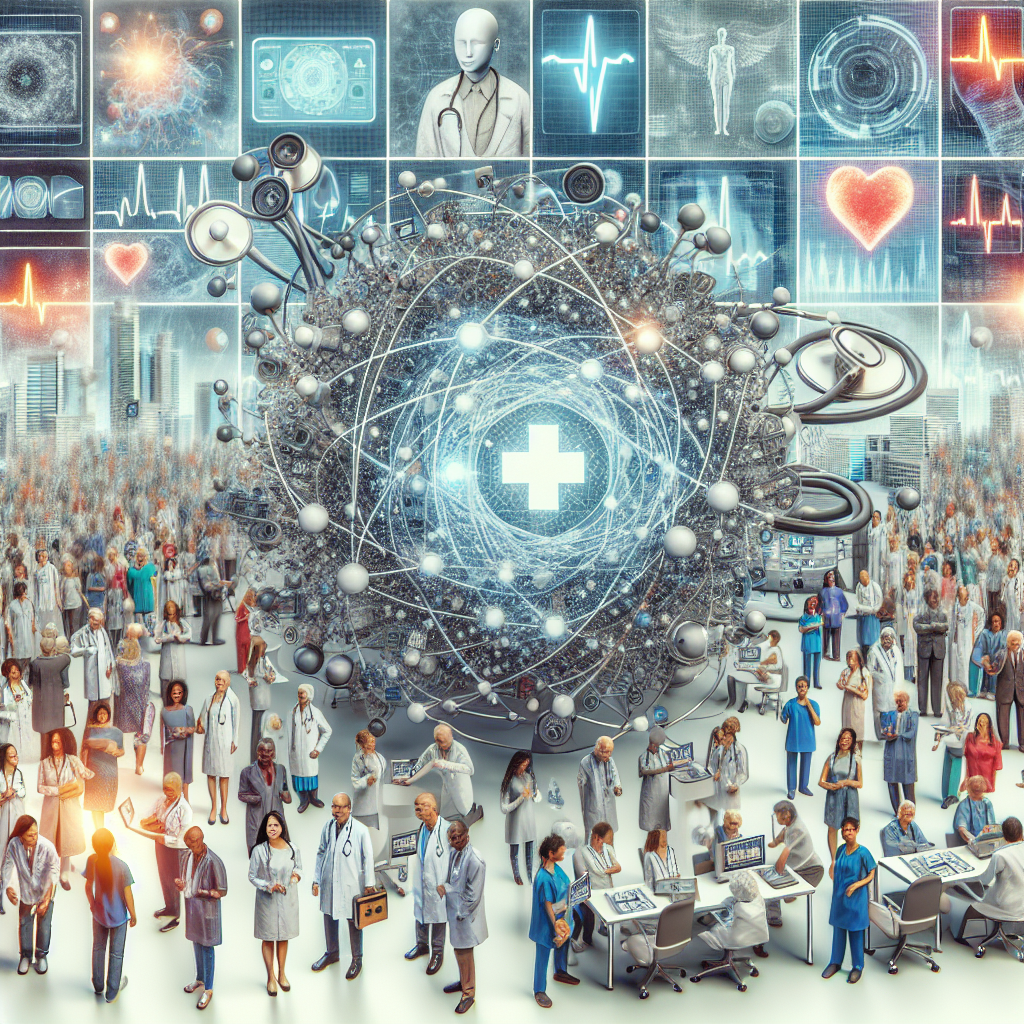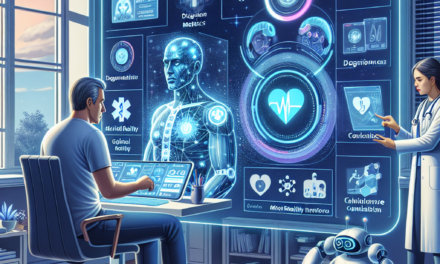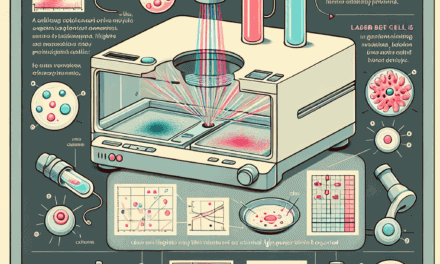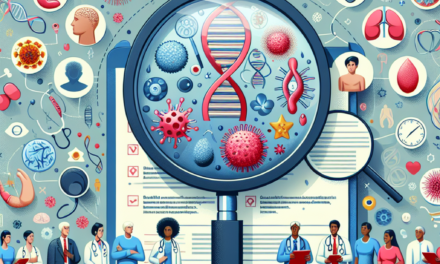Utilizing AI to Prevent Hospitalization for 300,000 Individuals

In recent years, the integration of artificial intelligence (AI) in healthcare has shown promising potential in transforming patient care and reducing hospitalizations. With the increasing burden on healthcare systems worldwide, AI offers innovative solutions to predict, prevent, and manage health conditions before they necessitate hospital admission. This article explores how AI can be leveraged to prevent hospitalization for 300,000 individuals, focusing on predictive analytics, personalized medicine, remote monitoring, early intervention, and healthcare system optimization.
Predictive Analytics in Healthcare
Predictive analytics is a powerful tool in the healthcare sector, enabling providers to anticipate patient needs and intervene before conditions worsen. By analyzing vast amounts of data, AI can identify patterns and predict potential health risks, allowing for timely preventive measures.
One of the most significant applications of predictive analytics is in chronic disease management. Chronic diseases such as diabetes, heart disease, and chronic obstructive pulmonary disease (COPD) are leading causes of hospitalization. AI algorithms can analyze patient data, including medical history, lifestyle factors, and genetic information, to predict the likelihood of disease exacerbation. For instance, a study published in the Journal of Medical Internet Research demonstrated that AI models could predict hospital readmissions for heart failure patients with an accuracy of over 80%.
Moreover, predictive analytics can be used to identify at-risk populations. By analyzing social determinants of health, such as socioeconomic status, access to healthcare, and environmental factors, AI can pinpoint individuals who are more likely to require hospitalization. This information allows healthcare providers to allocate resources more effectively and implement targeted interventions.
In addition to chronic disease management, predictive analytics can also be applied to acute conditions. For example, AI can analyze emergency department data to predict patient surges and optimize staffing levels, reducing wait times and improving patient outcomes. By preventing overcrowding and ensuring timely care, hospitals can reduce the likelihood of unnecessary admissions.
- Chronic disease management through AI
- Identifying at-risk populations
- Optimizing emergency department operations
Personalized Medicine and AI
Personalized medicine, also known as precision medicine, tailors medical treatment to the individual characteristics of each patient. AI plays a crucial role in advancing personalized medicine by analyzing genetic, environmental, and lifestyle data to develop customized treatment plans.
One of the most promising applications of AI in personalized medicine is pharmacogenomics, which studies how genes affect a person’s response to drugs. By analyzing genetic data, AI can predict which medications will be most effective for a particular patient, reducing the risk of adverse drug reactions and hospitalizations. For example, a study published in The Lancet demonstrated that AI-driven pharmacogenomic testing reduced hospitalizations by 30% in patients with cardiovascular disease.
AI can also enhance personalized medicine by identifying biomarkers for disease. Biomarkers are measurable indicators of a biological condition, and their identification can lead to earlier diagnosis and treatment. For instance, AI algorithms have been used to identify biomarkers for Alzheimer’s disease, allowing for earlier intervention and potentially delaying disease progression.
Furthermore, AI can assist in developing personalized treatment plans for cancer patients. By analyzing tumor genetics and patient data, AI can recommend targeted therapies that are more likely to be effective, reducing the need for hospitalization due to treatment complications.
- Pharmacogenomics and AI
- Biomarker identification
- Personalized cancer treatment
Remote Monitoring and AI
Remote monitoring technologies, powered by AI, enable continuous tracking of patients’ health status outside of traditional healthcare settings. These technologies can significantly reduce hospitalizations by providing real-time data to healthcare providers, allowing for early intervention when necessary.
Wearable devices, such as smartwatches and fitness trackers, are increasingly being used for remote monitoring. These devices can track vital signs, physical activity, and sleep patterns, providing valuable data for AI algorithms to analyze. For example, a study published in the Journal of Medical Internet Research found that remote monitoring of heart failure patients using wearable devices reduced hospitalizations by 38%.
In addition to wearables, AI-powered telehealth platforms enable remote consultations and monitoring. These platforms allow patients to connect with healthcare providers from the comfort of their homes, reducing the need for hospital visits. AI can analyze data from telehealth consultations to identify patients at risk of deterioration and recommend appropriate interventions.
Remote monitoring is particularly beneficial for managing chronic conditions. For instance, AI algorithms can analyze data from glucose monitors to predict hypoglycemic events in diabetes patients, allowing for timely intervention and preventing hospital admissions.
- Wearable devices for remote monitoring
- AI-powered telehealth platforms
- Managing chronic conditions with remote monitoring
Early Intervention and AI
Early intervention is critical in preventing the progression of diseases and reducing hospitalizations. AI can facilitate early intervention by identifying early signs of disease and recommending appropriate preventive measures.
One area where AI has shown promise is in the early detection of sepsis, a life-threatening condition that can lead to hospitalization. AI algorithms can analyze electronic health records (EHRs) to identify patients at risk of sepsis and alert healthcare providers to initiate early treatment. A study published in Nature Medicine demonstrated that an AI model reduced sepsis-related hospitalizations by 20%.
AI can also aid in the early detection of mental health conditions. By analyzing data from social media, wearable devices, and EHRs, AI can identify individuals at risk of depression or anxiety and recommend early intervention strategies. Early intervention can prevent the escalation of mental health issues and reduce the need for hospitalization.
Furthermore, AI can assist in the early detection of infectious diseases. By analyzing data from various sources, including social media and public health records, AI can identify outbreaks and predict their spread, allowing for timely public health interventions and reducing hospitalizations.
- Early detection of sepsis
- Identifying mental health risks
- Predicting infectious disease outbreaks
Healthcare System Optimization with AI
AI can optimize healthcare systems by improving resource allocation, streamlining workflows, and enhancing decision-making processes. These optimizations can lead to more efficient healthcare delivery and reduce the need for hospitalizations.
One way AI can optimize healthcare systems is through predictive modeling for resource allocation. By analyzing patient data and hospital operations, AI can predict patient demand and optimize staffing levels, reducing wait times and improving patient outcomes. For example, a study published in Health Affairs found that AI-driven resource allocation reduced hospitalizations by 15% in a large healthcare system.
AI can also streamline workflows by automating routine tasks, such as appointment scheduling and billing. Automation reduces administrative burdens on healthcare providers, allowing them to focus on patient care and potentially preventing hospitalizations due to delayed or missed appointments.
Furthermore, AI can enhance decision-making processes by providing healthcare providers with evidence-based recommendations. By analyzing clinical data and medical literature, AI can assist in diagnosing conditions and recommending treatment plans, reducing the risk of hospitalization due to misdiagnosis or inappropriate treatment.
- Predictive modeling for resource allocation
- Automating routine tasks
- Enhancing decision-making processes
Conclusion
The integration of AI in healthcare holds immense potential for preventing hospitalizations and improving patient outcomes. By leveraging predictive analytics, personalized medicine, remote monitoring, early intervention, and healthcare system optimization, AI can transform patient care and reduce the burden on healthcare systems. As technology continues to advance, the potential for AI to prevent hospitalization for 300,000 individuals becomes increasingly achievable. By embracing these innovations, healthcare providers can deliver more efficient, effective, and personalized care, ultimately improving the quality of life for patients worldwide.





